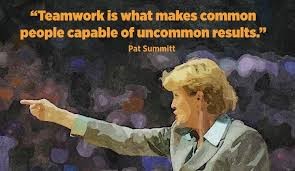I hate putting my time or money into something that ends up not being worth it. A couple of years ago my wife and I were doing some painting inside the house. We ordered this great sounding device that was supposed to make trimming a cinch. Well … upon arrival of the product, we discovered that the quality of the gadget was significantly lower than the quality of the idea. In short, it was not worth using.
Suffice it to say that whatever we invest our time and money in does not always turn out to be worth it. Teaching the lesson of unreasonable expectations to the children in the family takes patience. When my sweet mother-in-law was raising my wife and her two siblings and one of them made a request for something that was “not gonna happen” … she would chuckle and say to them, “Yea, and people in jail want out!”
There is no guarantee you will get what you want. There is always a risk that some things you purchase are a waste of money. And sometimes the places you want to go or the things you want to do are not going to work out.
There is, however, something of a spiritual nature that has a trustworthy guarantee.
Therefore, since we receive a kingdom which cannot be shaken, let us show gratitude, by which we may offer to God an acceptable service with reverence and awe; … (Hebrews 12:28)
This “kingdom that cannot be shaken” is worth trading everything we are and all we have in order to live in it. In a world in which many people get upset at the things that don’t work like they’re supposed to, the only thing I know of that comes through 100% of the time is the grace of God poured out on us in this “kingdom that cannot be shaken.”
In all my years of adulthood, I can’t think of a single person who ever came back to me and said they were disappointed in the life of faith offered to them through Jesus Christ. This is based on those who were “all in” for the kingdom.
For those who were just trying to “fit God into their schedule,” it seemed to me that they didn’t want to be “in” this kingdom, but just visit occasionally. In that case, God is not really your king. Those folks were frequently disappointed.
I am thankful that there is a “kingdom that cannot be shaken” offered by grace to all of us, in which the warranty never runs out. I’m all in for that! And good news … living in this unshaken kingdom also means that when the events of this life try to rock my world, I can remain personally unshaken because of the unshakable foundation of this kingdom in which I dwell.
If you or someone you know is holding out looking for a sure thing to commit to, hold back no longer. And when you take the leap, you will discover that this is not just an idea, it is a Person, the Creator himself, drawing you into a deep, loving relationship that far exceeds expectations … it will produce a sense of “reverence and awe” within you.
King David was all in, saying, “I lift up my eyes to the hills— from where will my help come? My help comes from the Lord, who made heaven and earth. He will not let your foot be moved …” (Psalm 121:1-3a)
This seems strange to say, but I have been shaken up a few times in my life, and yet remained unshaken, because God absorbed the shaking.
Blessings,
Chaplain Mark

